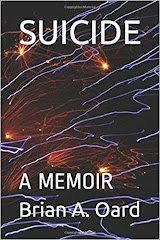From Shelby Foote's Paris Review Interview, a classic collision of Hollywood and Literature:
FOOTE: ...You’ve heard that thing about Faulkner and Clark Gable haven’t you? Howard Hawks was taking Faulkner out on a quail shoot and came by to pick him up a little before dawn to get to where they were going by first light. Clark Gable was in the car, and Faulkner in the backseat. As they rode along, Gable and Hawks got to talking. Gable said, You know, you’re a well-read man, Howard. I’ve always been meaning to do some reading. I never have really done it. What do you think I ought to read? And Hawks said, Why don’t you ask Bill back there. He’s a writer, and he’ll be able to tell you. Gable said, Do you write, Mr. Faulkner? Faulkner said, Yes, Mr. Gable. What do you do?
Wednesday, September 21, 2011
Saturday, September 17, 2011
The Real Problem with HUCKLEBERRY FINN
The real problem with Huckleberry Finn has nothing to do with the novel's notorious and historically accurate 219 uses of the word 'nigger.' (About which, Twain's comedic descendant Stephen Colbert said it best: "Mark Twain isn't just a great writer; he's a great rapper.") No, the real problem, the problem that remained unspoken in the highly-circumscribed media 'debate' over the book, is the fact that this widely-acknowledged 'great American novel' does not deserve the first of those adjectives. While it contains some great moments (Huck and Jim on the island and the raft in the book's first third, Huck's famous "All right, then, I'll go to hell" turning point scene later), the novel as a whole is fatally flawed by a series of poor authorial decisions. Once the two con men climb aboard the raft, the novel goes south faster than the flooded Mississippi, and Twain must have seen it floating swiftly away, because at this point he began to pad furiously. The last two-thirds of the book contain more padding than a room full of Victorian furniture. The misadventures of the duke and dauphin are bad enough, but when Tom Sawyer arrives, the book's quality drops like a boulder down a well. Tom's annoying schemes and his good-naturedly sadistic tormenting of Jim are like a long, painfully unfunny joke drawn out to soporific length--and then drawn out even further. I'm surely not the only reader who ends the book hoping that Jim's first act as a free man will be to whup that little white boy's ass all the way back to Missouri. The Adventures of Huckleberry Finn is one-third great and two-thirds tiresome. While acknowledging that it's an essential and highly influential work of American literature, we should not overestimate its quality.
Pap Finn, Prophet of the Tea Party
One of the many things Huckleberry Finn can teach us is that the worldview of American reactionaries has undergone remarkably little change in the past 150 years. Huck Finn's father--one of Twain's supreme creations, a character equally comic and terrifying--at one point launches into a rant that could, mutatis mutandis, issue from the mouth of any of the millions of present-day Americans (about 20% of the voting population, it appears) who constitute the rank-and-file of that amalgamation of corporate tools, right-wing anarchists, nativists, gun rights hysterics and others who seek shelter under the Tea Party's umbrella:
"Oh, yes, this is a wonderful govment, wonderful. Why, looky here. There was a free nigger there from Ohio--a mulatter, most as white as a white man. He had the whitest shirt on you ever see, too, and the shiniest hat; and there ain't a man in that town that's got as fine clothes as what he had; and he had a gold watch and chain, and a silver-headed cane--the awfulest old gray-headed nabob in the State. And what do you think? They said he was a p'fessor in a college, and could talk all kinds of languages, and knowed everything. And that ain't the wust. They said he could VOTE when he was at home. Well, that let me out. Thinks I, what is the country a-coming to? It was 'lection day, and I was just about to go and vote myself if I warn't too drunk to get there; but when they told me there was a State in this country where they'd let that nigger vote, I drawed out. I says I'll never vote agin. Them's the very words I said; they all heard me; and the country may rot for all me --I'll never vote agin as long as I live. And to see the cool way of that nigger--why, he wouldn't a give me the road if I hadn't shoved him out o' the way. I says to the people, why ain't this nigger put up at auction and sold?--that's what I want to know. And what do you reckon they said? Why, they said he couldn't be sold till he'd been in the State six months, and he hadn't been there that long yet. There, now--that's a specimen. They call that a govment that can't sell a free nigger till he's been in the State six months. Here's a govment that calls itself a govment, and lets on to be a govment, and thinks it is a govment, and yet's got to set stock-still for six whole months before it can take a hold of a prowling, thieving, infernal, white-shirted free nigger, and--"
Imagine Pap Finn's reaction if someone told him that the president of the United States was a "mulatter p'fessor" and you will begin to understand the dark circuit of American memory from which the Tea Party draws its power.
"Oh, yes, this is a wonderful govment, wonderful. Why, looky here. There was a free nigger there from Ohio--a mulatter, most as white as a white man. He had the whitest shirt on you ever see, too, and the shiniest hat; and there ain't a man in that town that's got as fine clothes as what he had; and he had a gold watch and chain, and a silver-headed cane--the awfulest old gray-headed nabob in the State. And what do you think? They said he was a p'fessor in a college, and could talk all kinds of languages, and knowed everything. And that ain't the wust. They said he could VOTE when he was at home. Well, that let me out. Thinks I, what is the country a-coming to? It was 'lection day, and I was just about to go and vote myself if I warn't too drunk to get there; but when they told me there was a State in this country where they'd let that nigger vote, I drawed out. I says I'll never vote agin. Them's the very words I said; they all heard me; and the country may rot for all me --I'll never vote agin as long as I live. And to see the cool way of that nigger--why, he wouldn't a give me the road if I hadn't shoved him out o' the way. I says to the people, why ain't this nigger put up at auction and sold?--that's what I want to know. And what do you reckon they said? Why, they said he couldn't be sold till he'd been in the State six months, and he hadn't been there that long yet. There, now--that's a specimen. They call that a govment that can't sell a free nigger till he's been in the State six months. Here's a govment that calls itself a govment, and lets on to be a govment, and thinks it is a govment, and yet's got to set stock-still for six whole months before it can take a hold of a prowling, thieving, infernal, white-shirted free nigger, and--"
Imagine Pap Finn's reaction if someone told him that the president of the United States was a "mulatter p'fessor" and you will begin to understand the dark circuit of American memory from which the Tea Party draws its power.
Friday, September 16, 2011
My favorite scene in BLOOD MERIDIAN
My favorite scene in Cormac McCarthy's Blood Meridian is one of the few that doesn't end with blood spurting from an opened artery or a handful of brains blowing out the back of someone's head. It's the marvelous scene in chapter 19 that McCarthy laconically titles "Brown at the farrier's." When the murderer Brown arrives at a San Diego farrier's workshop and orders him to saw off the barrels of a shotgun he has stolen, the craftsman is dumbfounded and appalled. For the gun is a thing of beauty, a masterpiece of the gunsmith's art. Sawing off its barrels would be tantamount to cutting off Michelangelo's David at the knees or wiping one's ass on a canvas by Monet. The farrier refuses and flees (the only sensible thing to do when one sees a Cormac McCarthy character coming one's way), and Brown is left to hack off the barrels himself. This is one of the few scenes in the novel in which McCarthy orchestrates a stark conflict of worldviews and value systems. (It's also one of the very few in which an unarmed person stands up to a member of the Glanton gang and lives.) It is a collision of cultures. Brown is a nihilistic killer from out of the American desert places. For him, the value of any object resides solely in its capacity to inflict terroristic violence. The farrier, by contrast, is an urban businessman and craftsman, a believer in the rule of law and the pure value of exquisite artisanry. Compared to Brown, the farrier is an aesthete; compared to the farrier, Brown is an imbecilic monster. I also suspect that the farrier is the only character in the book who comes close to being an authorial stand-in. He is the book's only authentic artist, standing both within its violent world and critically apart from it. Perhaps we can begin to read Blood Meridian properly only when we read it from the farrier's point of view.
BLOOD MERIDIAN : Cormac McCarthy's Critique of Capitalism
One of the themes of Blood Meridian is the fundamental nihilism inherent in all ideologies of power: Manifest Destiny (most obviously in Captain White's ill-fated filibustering expedition); imperialism; capitalism; Christian morality. When the Glanton gang commandeers a Colorado River ferry late in Blood Meridian, Cormac McCarthy gives us a little allegory of the nihilistic contradictions of capitalism. Here's the relevant passage:
...Glanton took charge of the operation of the ferry. People who had been waiting three days to cross at a dollar a head were now told that the fare was four dollars. And even this tariff was in effect for no more than a few days. Soon they were operating a sort of procrustean ferry where the fares were tailored to accommodate the purses of the travelers. Ultimately all pretense was dropped and the immigrants were robbed outright. Travelers were beaten and their arms and goods appropriated and they were sent destitute and beggared into the desert. The doctor came down to remonstrate with them and was paid his share of the revenues and sent back. Horses were taken and women violated and bodies began to drift past the Yuma camp downriver... (262)
If Glanton and the boys were alive today, they would be oil company executives. Come to think of it, ex-Exxon CEO Lee Raymond does look a bit like a slightly more hirsute Judge Holden:
Well, the Judge told us he would never die, didn't he?
...Glanton took charge of the operation of the ferry. People who had been waiting three days to cross at a dollar a head were now told that the fare was four dollars. And even this tariff was in effect for no more than a few days. Soon they were operating a sort of procrustean ferry where the fares were tailored to accommodate the purses of the travelers. Ultimately all pretense was dropped and the immigrants were robbed outright. Travelers were beaten and their arms and goods appropriated and they were sent destitute and beggared into the desert. The doctor came down to remonstrate with them and was paid his share of the revenues and sent back. Horses were taken and women violated and bodies began to drift past the Yuma camp downriver... (262)
If Glanton and the boys were alive today, they would be oil company executives. Come to think of it, ex-Exxon CEO Lee Raymond does look a bit like a slightly more hirsute Judge Holden:
 |
| Lee Raymond: former Exxon CEO, Jabba the Hut impersonator |
Thursday, September 15, 2011
BLOOD MERIDIAN by Cormac McCarthy
Don't look away. We are not speaking in mysteries. You of all men are no stranger to that feeling, the emptiness and the despair. It is that which we take arms against, is it not? Is not blood the tempering agent in the mortar which bonds?... What do you think death is, man? Of whom do we speak when we speak of a man who was and is not? Are these blind riddles or are they not some part of every man's jurisdiction? What is death if not an agency? And whom does he intend toward? Look at me.
--Judge Holden in Blood Meridian
Judge Holden 'makes' Blood Meridian. Without him it would be a beautifully written western with a violent, Peckinpah-ish lyricism; with him, it's a great and fascinating novel that deserves shelf-space among the best works of Melville and Hawthorne. Judge Holden ('Judge' is possibly his first name, significantly mistaken for his title by the novel's other characters [cf, bizarrely enough, Judge Reinhold]), this seven-foot, 332-pound, dancing, declaiming, murdering masterpiece of malevolence, this ice-blooded preacher of the gospel of war, this terrifying and terrifyingly familiar embodiment of American nihilism, is by far the most impressive character in Blood Meridian and probably the greatest in McCarthy's entire oeuvre. Don't trust Holden when he claims not to speak in mysteries, for how else can he speak when he is himself the greatest mystery, appearing first to the Glanton gang as their satanic deliverer sitting calmly on a rock in the wilderness and proceeding to instruct them in the improvised manufacture of gunpowder from its natural plutonic elements? This story in chapter 10, which Chaucer might have titled 'The Ex-Priest's Tale,' is in my opinion the point at which the book blasts out of its 'revisionist western' subgenre and achieves true greatness. And the judge provides the powder for that blast. He seems bigger than the book, in the same way that Shakespeare's greatest characters are so much larger than the borrowed plots that struggle to contain them. And like Hamlet and Lear he is constantly performing, irrepressibly theatrical--even at one point declaiming naked upon a battlement in a raging thunderstorm a poem that could only be the storm scene from Lear. (McCarthy is artist enough to describe this performance only vaguely and indirectly, letting the reader connect the literary dots. The Lear connection becomes more obvious later when we see the Judge wandering with his 'fool.') Also like those Shakespearean creations in their respective plays, Holden is the only character in Blood Meridian whose consciousness seems uncannily to contain the book in which he appears. When he tells his fellow killers that "Books lie," only he seems to appreciate the delicious irony, only he seems to realize that he is a character in a book. What else could be the meaning of his mysterious smile as he speaks these words? Even more interestingly, it might be argued that Judge Holden is the 'narrator' of Blood Meridian, that the book is 'spoken' in the voice of his polymathic, polylingual consciousness. He is, after all, the only man still alive at the end, still dancing, still talking, and still insisting that he will never be stilled.
(This hypothesis might clear up one of the book's concluding mysteries: Why does the scene-synopsis at the head of the last chapter describe the last scene in German? Obviously, this is another example of the multilingual Holden showing off. The fact that the line's 'Ich' refers to Judge Holden seems to confirm the hypothesis. This is McCarthy's way of identifying the narratorial consciousness at novel's end.)
--Judge Holden in Blood Meridian
Judge Holden 'makes' Blood Meridian. Without him it would be a beautifully written western with a violent, Peckinpah-ish lyricism; with him, it's a great and fascinating novel that deserves shelf-space among the best works of Melville and Hawthorne. Judge Holden ('Judge' is possibly his first name, significantly mistaken for his title by the novel's other characters [cf, bizarrely enough, Judge Reinhold]), this seven-foot, 332-pound, dancing, declaiming, murdering masterpiece of malevolence, this ice-blooded preacher of the gospel of war, this terrifying and terrifyingly familiar embodiment of American nihilism, is by far the most impressive character in Blood Meridian and probably the greatest in McCarthy's entire oeuvre. Don't trust Holden when he claims not to speak in mysteries, for how else can he speak when he is himself the greatest mystery, appearing first to the Glanton gang as their satanic deliverer sitting calmly on a rock in the wilderness and proceeding to instruct them in the improvised manufacture of gunpowder from its natural plutonic elements? This story in chapter 10, which Chaucer might have titled 'The Ex-Priest's Tale,' is in my opinion the point at which the book blasts out of its 'revisionist western' subgenre and achieves true greatness. And the judge provides the powder for that blast. He seems bigger than the book, in the same way that Shakespeare's greatest characters are so much larger than the borrowed plots that struggle to contain them. And like Hamlet and Lear he is constantly performing, irrepressibly theatrical--even at one point declaiming naked upon a battlement in a raging thunderstorm a poem that could only be the storm scene from Lear. (McCarthy is artist enough to describe this performance only vaguely and indirectly, letting the reader connect the literary dots. The Lear connection becomes more obvious later when we see the Judge wandering with his 'fool.') Also like those Shakespearean creations in their respective plays, Holden is the only character in Blood Meridian whose consciousness seems uncannily to contain the book in which he appears. When he tells his fellow killers that "Books lie," only he seems to appreciate the delicious irony, only he seems to realize that he is a character in a book. What else could be the meaning of his mysterious smile as he speaks these words? Even more interestingly, it might be argued that Judge Holden is the 'narrator' of Blood Meridian, that the book is 'spoken' in the voice of his polymathic, polylingual consciousness. He is, after all, the only man still alive at the end, still dancing, still talking, and still insisting that he will never be stilled.
(This hypothesis might clear up one of the book's concluding mysteries: Why does the scene-synopsis at the head of the last chapter describe the last scene in German? Obviously, this is another example of the multilingual Holden showing off. The fact that the line's 'Ich' refers to Judge Holden seems to confirm the hypothesis. This is McCarthy's way of identifying the narratorial consciousness at novel's end.)
Saturday, September 3, 2011
IT'S YOUR MISFORTUNE AND NONE OF MY OWN: A NEW HISTORY OF THE AMERICAN WEST by Richard White
Richard White's King Ranch-size volume of 'New Western History' is an interesting, enlightening, sometimes exciting, sometimes boring book that badly needs two things: 1) a proofreader and 2) an author who can write like Patricia Nelson Limerick. I read White's book immediately after Limerick's seminal The Legacy of Conquest, and It's Your Misfortune... suffers from the inevitable comparison. Most obviously, Limerick is a witty and engaging writer, while White's prose lopes along like an starving pony. (It may seem beside the point to criticize a historian's prose, but it's not. Historians are, by definition, writers, and the quality of their prose should enter into the evaluation of their works.) Passing from medium to content, White's work can be read as an often-ponderous elaboration of ideas presented more snappily--albeit much more summarily--in Limerick's book. In short, The Legacy of Conquest provides the thesis statement of New Western History, and White professorially marshals the facts and stats to support it. While that's probably not an unfair description, it does slight the undeniable strengths of White's book. This is an insanely wide-ranging work that finds interesting and unfamiliar things to say about events as disparate as the California Gold Rush and the Dust Bowl, Japanese-American internment and the fictional life of Billy the Kid, the founding of the National Park system and the slow death of Indian Territory (as what's now Oklahoma was once known). It's probably best not to read this book cover to cover (as I just did) but to treat it as a revisionist encyclopedia of Western history, dipping into the index to find White's take on the Mormon settlement of Utah, the transcontinental railroad, the rise of Reagan, etc. The passages that most interested and intrigued me were White's occasional exemplary asides: he has a wonderful eye for the telling historical anecdote. His account of the California 'Indian hunters' Hi Good and Robert Anderson and Good's richly deserved end reads like a tale taken from Blood Meridian, and his mention of Juan Cortina's War equally piqued my interest. Also, White's brief description of the strict gun control that existed uncontroversially in many Western towns is the best kind of history writing--the kind that complicates our present political uses and abuses of the past.
Subscribe to:
Posts (Atom)









